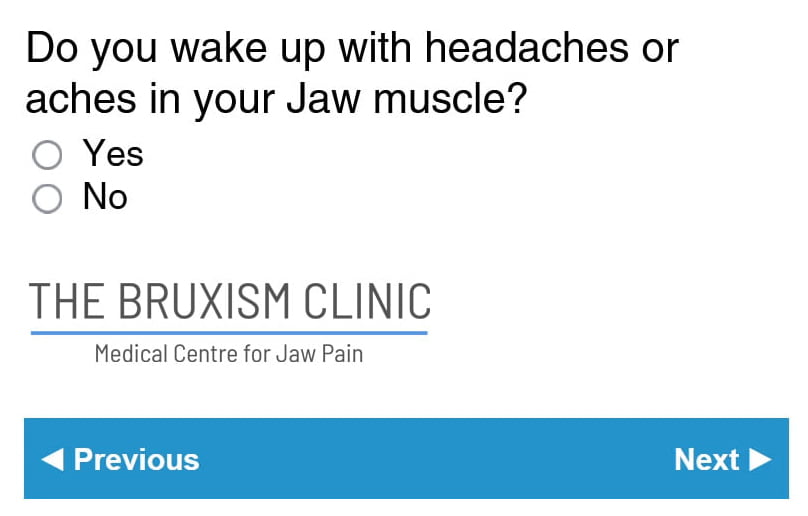Teeth grinding, also known as bruxism, is a common issue that many people experience while awake or asleep. It’s not just an annoying habit; over time, it can lead to significant dental and health problems. Those who grind their teeth often don’t even realize they’re doing it until they start facing discomfort, such as jaw pain or headaches. Addressing teeth grinding is important because it can help prevent further dental damage and improve your overall well-being.
Fortunately, there are various ways to tackle this problem. From natural techniques that focus on lifestyle changes to medical interventions that provide more structured solutions, diverse methods can be effective. Both approaches aim to reduce or eliminate the act of grinding, improving oral health and general comfort.
Recognizing the Signs of Teeth Grinding
Noticing the early signs of teeth grinding is crucial for addressing it effectively. Spotting bruxism isn’t always straightforward, but there are some tell-tale symptoms you can look out for. People with bruxism might experience:
- Jaw or face pain, especially after waking up
- Headaches, often starting from the temple area
- Tight or tired jaw muscles
- Chipped, flattened, or worn-down teeth
- Discomfort while chewing
Understanding the causes can also guide prevention. Stress is a substantial factor contributing to teeth grinding. When life feels overwhelming, or work pressures build up, the body may respond with physical manifestations like clenching or grinding teeth. Lifestyle factors, such as caffeine or alcohol consumption, can also play a role, as they may increase muscle activity, including that of the jaw.
Sometimes, it’s best to consult with a dental professional to confirm whether you’re experiencing bruxism. They can check for tooth damage or unusual wear patterns that indicate grinding. By catching these signs early, you can seek appropriate treatment before excessive damage occurs.
Recognizing these symptoms and their causes allows for a better understanding of bruxism, which is the first step in managing and seeking the right treatment.
Natural Approaches to Prevent Teeth Grinding
Before exploring medical treatments, consider natural methods to alleviate bruxism. These approaches focus on reducing tension and stress, which are often culprits in teeth grinding. Here are a few strategies that can help:
1. Relaxation Techniques: Activities like yoga, meditation, and deep breathing exercises can significantly ease stress levels. Incorporating these into your daily routine may lower the frequency of grinding episodes.
2. Dietary Adjustments: Paying attention to your food and drink intake can make a difference. Avoiding caffeine and alcohol, especially in the evening, may reduce nighttime grinding. Opt for a balanced diet with plenty of hydration to promote overall health.
3. Proper Sleep Habits: A relaxing bedtime routine can improve the quality of sleep. Create a calming environment by reducing screen time before bed and maintaining a consistent sleep schedule. Sleeping on your side rather than your back may also help ease overnight grinding.
These natural solutions focus on relieving stress and improving lifestyle habits, paving the way for healthier oral practices. They provide a foundation that can complement more structured medical interventions if needed.
Medical Treatments for Teeth Grinding
Beyond natural methods, exploring medical treatments for teeth grinding can offer effective solutions for more persistent cases. One common intervention involves the use of custom mouthguards or dental splints. Dentists can craft these devices to fit your mouth precisely, providing a protective barrier between the teeth. This prevents further wear and minimises the impact of grinding.
Medications can also play a role in managing teeth grinding. Muscle relaxants may be prescribed to help alleviate tension before bedtime, reducing the likelihood of grinding during sleep. In some instances, anti-anxiety medications can assist in alleviating stress-related bruxism by addressing the underlying anxiety.
Botox injections are another option being explored to manage teeth grinding. These injections work by relaxing the muscles in the jaw, thereby reducing the force of grinding during sleep. It’s a procedure that’s gaining recognition for its ability to relieve discomfort without extensive intervention. However, like any medical treatment, it’s important to discuss the benefits and potential side effects with a healthcare provider.
When to Seek Professional Help
Knowing when to seek professional help for teeth grinding is as important as the treatments themselves. If you're experiencing persistent jaw pain, frequent headaches, or significant distress from grinding, it's time to consult a professional. Additionally, if natural methods haven’t provided the relief you hoped for, a dental expert can offer tailored solutions suited to your needs.
Visiting a dentist can provide clarity and solutions beyond the at-home measures. Dentists have the expertise to assess the severity of bruxism and suggest an effective treatment plan. This approach not only addresses current symptoms but also prevents potential dental issues down the line.
Taking Charge of Your Oral Health
Addressing teeth grinding with both natural and medical strategies is key to protecting your oral health and improving your quality of life. By incorporating stress-reducing techniques and being open to medical options, you can reduce the impacts of bruxism.
The journey to managing teeth grinding involves understanding your unique triggers and being proactive in finding solutions. While natural methods provide valuable support, sometimes medical treatments offer the long-term relief needed to maintain health and comfort. Embracing a diverse approach ensures comprehensive coverage of this common issue, ultimately guiding you towards better oral care and daily well-being.
Discover effective options for teeth grinding treatment in Birmingham with The Bruxism Clinic. By exploring our range of professional solutions, including innovative Botox treatments, you can find relief from persistent grinding and protect your dental health. Learn how we can help you achieve greater comfort and improve your quality of life.







